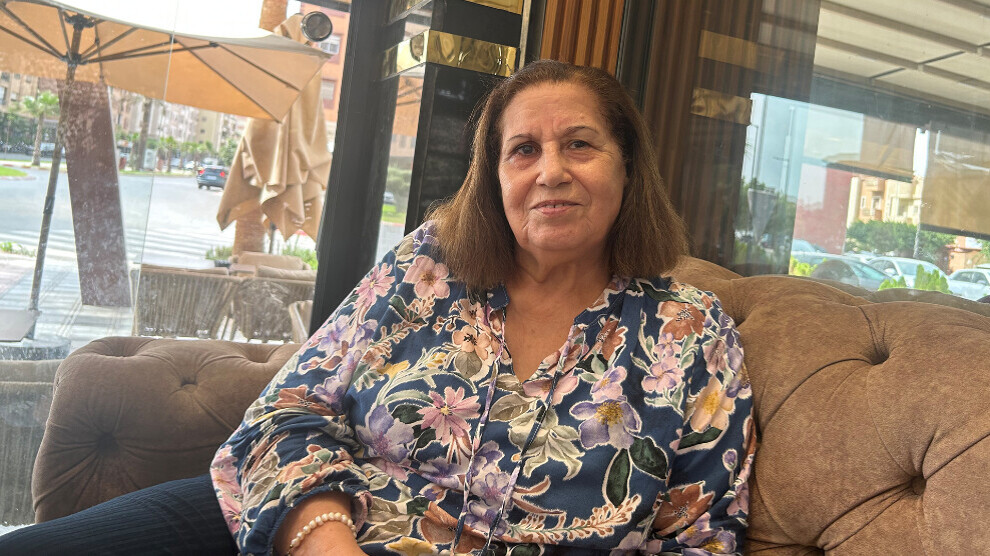Saida Al-Wadi: Data on Violence Against Women in Morocco Does Not Reflect Reality
Saida Al-Wadi, pointing out that contrary to the official figures presented by the state regarding violence against women in Morocco, the reality is much deeper and more complex, said that multifaceted efforts are needed in the fight against violence.

RAJA KHAYRAT
Morocco – According to official data published by the High Commission for Planning, only 11.3% of Moroccan women reported being subjected to violence by someone other than their husbands, while 8% reported domestic violence. The rate of sexual violence did not exceed 3%. Women in Morocco are subjected to gender-based violence in various settings, including cyberspace. The rate of cyber violence reached 13.8%. However, the most common form of violence occurs in the domestic and marital sphere. The prevalence rate in this area reaches as high as 52.2%. Experts note that this is one of the most dangerous forms of violence, emphasizing that such violence has driven some women and girls to suicide.
Official data does not reflect reality
Looking at the official figures, the rate of violence against women and girls appears low. However, the experiences reveal a disturbing reality behind these cases. This situation raises questions about the accuracy of the announced data and whether Moroccan society still recognizes the human rights of women.
Saida Al-Wadi, Secretary General of the Marrakech Branch of the Women’s Action Union and a human rights activist, stated that the violence data published by the High Planning Commission does not correspond to the realities experienced by Moroccan women. Noting that violence against women remains an underreported phenomenon, Saida Al-Wadi emphasized that the lack of discussion on unspoken forms of violence reveals a deep problem that directly affects the accuracy of the statistics published by official institutions. She said: “The failure to report many cases of violence is one of the main reasons for the low rates recorded in various forms of violence, especially domestic violence.”
‘Unrecorded violence is much higher’
Believing that reported rates of domestic violence do not fully reflect reality, Saida Al-Wadi said: “The reporting rate not exceeding 8% clearly shows that unrecorded violence is much higher. There are many reasons for this, particularly the patriarchal social structure and some outdated traditions… Unfortunately, this situation leads to the acceptance of gender-based violence and impunity for perpetrators. Behind women’s silence lie many social, familial, and economic pressures. Most women are in a weak economic position, which pushes them to remain silent out of fear of losing their livelihood. In addition, the fear of stigma is a huge obstacle. Many women fear the difficult and uncertain struggle they would face, and thus prefer to remain silent.”
‘Family intervention causes women to conceal the violence they experience’
Highlighting the many factors that prevent women from reporting cases of violence, Saida Al-Wadi said: “Legal costs, the complexity of legal procedures, and women’s insufficient knowledge of their legal rights are among the main reasons. Especially in cases where children are involved and the woman is not financially independent, the fear of losing sources of livelihood makes the situation even more complicated. Societal factors related to traditions and customs also play a major role in preventing women subjected to violence from accessing justice. Family intervention causes women to conceal the violence they experience. Violence perpetrated by the husband is normalized by society. These pressures from family and society on women reduce the likelihood of reporting and filing complaints, paving the way for impunity for perpetrators. In short, violence has been normalized in society.”
Violence is greater in rural areas
Addressing the situation of women in rural areas, Saida Al-Wadi said: “In rural areas, the rates of violence against women are very high, but unfortunately, women generally do not file complaints with the authorities. The main reasons for this are poverty, lack of basic services, social isolation, weak infrastructure, and transportation problems. This prevents women from accessing support units established for victims of violence, makes it difficult for them to access justice, and deepens their suffering. In addition, these conditions cause women to feel excluded and marginalized.”
‘Civil organizations must be included in the process’
Emphasizing that civil society organizations combating violence should be involved in the process in order to monitor rates of violence against women accurately and transparently, Saida Al-Wadi said: “Civil society organizations combating violence must be included in the process to monitor rates of violence against women accurately and transparently. In this way, accurate data on cases of violence can be obtained. These organizations collect data through centers that host women subjected to violence and counseling centers."
‘Psychological and legal support services must be strengthened’
Stating that regional counseling centers are obliged to prepare monthly and annual reports to monitor cases of violence, Saida Al-Wadi said that these reports also include the rates of women who applied to the centers. She emphasized that these centers start by listening to women’s complaints, provide them with psychological and legal support, and accompany them in court during the prosecution of perpetrators, supporting them at every stage. Drawing attention to the importance of providing expert support and emergency procedures to protect women, Saida Al-Wadi stated that psychological support services for women subjected to violence must be strengthened. She also emphasized that the scope of free legal services should be expanded so that women subjected to violence can access legal assistance.
At the end of her speech, Saida Al-Wadi said that civil society and women’s associations continue to struggle for women to attain all their human rights, particularly in relation to the Family Code. She noted that the efforts of human rights defenders and civil society in this field are ongoing.
